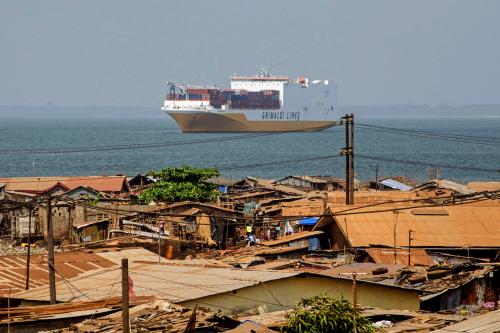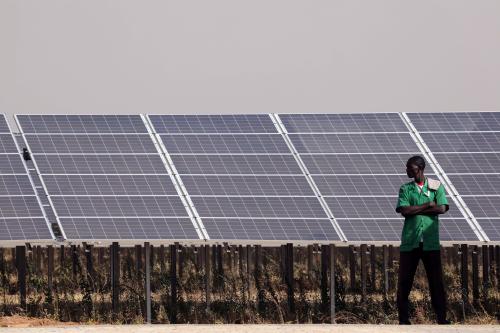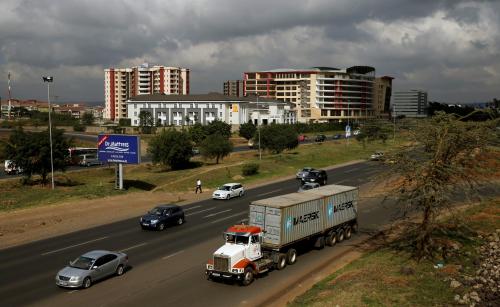There is no shortage of books and papers on the benefits of regional integration between countries. Yet, in practice, intra-regional integration has not received great traction, especially in South Asia, sub-Saharan Africa, and the Middle East and North Africa. (These are also the three regions of which I have been the World Bank’s chief economist. At different times, and using different indicators, each has claimed to be the “least integrated region in the world.”)
At one level, the studies may have overstated the benefits of regional integration. Most have focused on trade integration—the benefits for countries in sub-Saharan Africa, for instance, from trading with each other. For one thing, regional—as opposed to global—trade integration has an upside and a downside. The upside is trade creation—the fact that the countries trade more—and the downside is trade diversion—countries trade within the trading bloc whereas it would be more efficient to trade with the rest of the world. More plainly, these commodity-dependent, low-income countries have little to gain from trading with each other because they produce more or less the same things. The extreme version is the Gulf countries, all of which essentially produce oil. For these countries, the big gains are from integrating with Europe or the U.S., not with each other. Put simply, geographic proximity is not an advantage when it comes to trade integration.
Geographic proximity is an advantage when it comes to infrastructure integration. Having a common electricity grid in West Africa, for instance, enables small countries to benefit from economies of scale and the risk-mitigating benefits of large electricity networks. And you can only have a common electricity grid with countries that are located nearby.
Why then has even infrastructure integration been so elusive? I would suggest three reasons, each of which can be turned into an opportunity for greater integration.
- The 800-pound gorilla problem: In regions where there is one giant country and a number of small others, there is always a concern that the giant has an unfair bargaining advantage. In South Asia, it has been difficult to get a gas-sharing agreement between India and Bangladesh or a hydroelectricity agreement between India and Nepal for this reason. Likewise, the Economic Community of West African States has remained a limited regional integration body because it consists of the large country of Nigeria and a group of small countries. The fact is that large countries have very little to gain from regional integration, whereas smaller countries could register huge benefits. But one could turn this argument around: A large country has so little to lose that it may as well as reach an agreement with the small countries and earn a few public-relations points. This may be happening with the East African community, where Kenya—the largest economy, but hardly an 800-pound gorilla—is giving up some of its benefits in order to promote the interests of other members of the community.
Geopolitics: Within regional groupings, some countries are hostile to one another—India and Pakistan, Israel and its neighbors in the Middle East, etc. As a result, trade and other forms of integration are difficult for security reasons. At a conference on regional integration in South Asia, I sat next to a surgical-instruments manufacturer from Pakistan and a hospital magnate from India. It turns out the Indian’s hospitals used the Pakistani’s surgical instruments—except that the instruments were first sent to Germany, from where they were exported to India. Soon they were trying to make a deal where they could trade directly with one another, leaving out the German middleman. This episode taught me one other thing: the private sector doesn’t care about geopolitics; instead, they just want to make money. If in these delicate situations, we allow the private sector to trade and integrate—even when the governments are fighting—we may be able to achieve regional integration despite the geopolitical obstacles. In the Levant region of the Middle East, where civil wars are raging in a number of countries, there are private investors wanting to invest in, say, Iraq, in order to promote trade with Syria or Jordan.
Domestic politics: Infrastructure cooperation requires countries to harmonize their policies and regulations with each other. For instance, railroad gauges must be compatible for trains to pass from one country to another (this was not the case between Mali and Senegal, which led one observer to quip, “When it comes to railways, Senegal is a landlocked country.”) In the case of energy, cooperation means that countries need to agree to electricity tariffs and regulations. These agreements require countries to give up some sovereignty in determining their own prices and regulations. Moreover, reforming tariffs and bringing them close to marginal costs has been difficult in many countries because of domestic politics: powerful people benefit from keeping tariffs below marginal costs. Again, though, this obstacle could be turned into an opportunity. If reforming domestic tariffs is difficult, perhaps the prospect of the gains from infrastructure integration with the neighbors could tip the balance. In other words, regional integration could be a way of promoting domestic reforms.






Commentary
Why is regional integration so elusive?
July 6, 2017